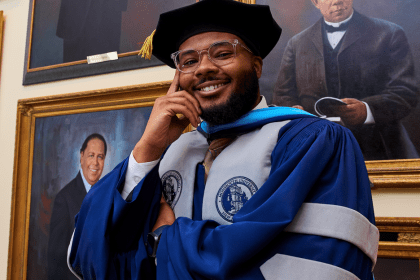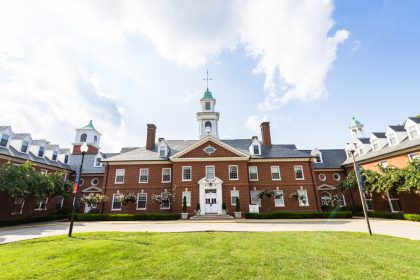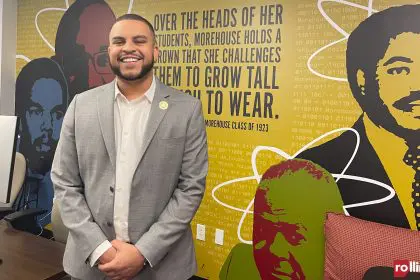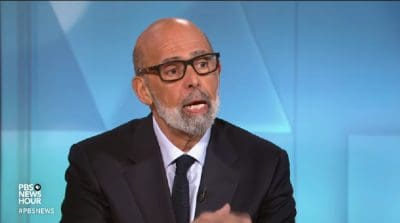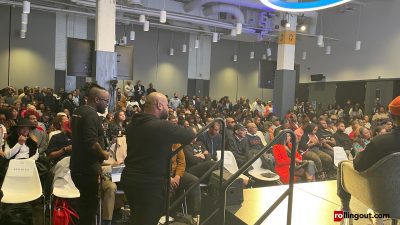
The Buick Achievers scholarship winners have already exemplified their self-starter capabilities and perseverance to get a top-notch education. But Kevin Williams imbued the undergraduates on hand for the UNCF Awards weekend in Atlanta with a powerful tale of how education not only transformed his life but also altered the direction and trajectory of his family forever.
“I was the first in my family to graduate from college, My mother finished in her highest grade, sixth, my father finished the eighth grade. I was the youngest of 12 children and the first to go to college,” he said.
Emanating from such humble origins, education was the key that served as the rocket that propelled Williams to to the presidential suite at General Motors Canada.
Since Williams got his business management degree from Tennessee State University in 1983 and a master’s degree in business administration from Central Michigan University, Williams’ older sister, Jennifer, got her bachelor’s degree at age 55 and her master’s at age 58. “And she’s gone on to ensure that not just herself, but for 22 of her nieces and nephews to get their education,” Williams said.
“When you open that door, you don’t only open that door for yourself, but for everyone else to step through. And it was very easy for to say that if I can do it, then my nieces and nephews and sisters and brothers can walk through that same door.”
As a child growing up in Maryland, Williams lacked the resources to travel outside of the state, save for a high school field trip to the mountains of Pennsylvania near Philadelphia.
Contrast that with this: “My daughters have been in 39 countries. Just last year, my daughter called me to tell me that ‘hey, I’m going to Ghana. I have a friend in Africa.’ My youngest worked at an orphanage in India; she has a passion for kids. But the point is, the world is their oyster and that’s what happens when you have the ability to go to a university and then go on to do great things.
“Education opened those doors and they have the mindset to pay it forward.
“My education at Tennessee State University, which was a very good education, prepared me to excel from the moment I arrived at GM,” said Williams, who was inducted into the National Black Hall of Fame because of his illustrious career at GM and what he overcame to arrive at such prestigious heights.
Because of his devotion to scholastic and professional excellence, Williams has experienced things in life that most can only dream about. His daughters were born in Germany and both went on to attend Ivy League powerhouse Yale University.
“Since my oldest daughter graduated, she has gone to L.A. as an investment banker [and] she worked on Wall Street. And thank God I don’t have to pay off [her student loan]. And she knows that she has to pay it forward. And that’s what this is about — paying it forward.”
As for Williams?
“Me? I’ve done everything in life I could imagine doing: I’m the president of a $17 billion-dollar company that is General Motors Canada, [with] 10,000 employees in Canada. I sit in the senior level that’s doing miraculous things. I also was the president of General Motors Mexico. So I’ve been all over the world.”

This is why Williams encouraged the Buick Achievers to not only continue on with their great education, but also to support those organizations and campaigns that advocate for education as a top priority in America.
“So we’re [General Motors] are pretty excited to be on the board of the UNCF and I have worked with Dr. Lomax and the team,” he said. “We have to do our jobs exceptionally well, because if we don’t do our jobs, kids don’t go to college. So UNCF is so critical to the foundation of education in the black community. Federal programs are being cut back. Pell Grants are being cut back.
“[The] U.S. government has 17 trillion in debt, and President Obama and others are working to eliminate that debt. So it’s easy to cut back on programs that help our kids get into college.”
That means organizations such as the UNCF, who are proponents of education have to be supported so that more blacks, particularly black men, can build a stronger pipeline from high school to college instead of the prison-industrial complex.
“We saw how the Civil Rights Movement brought us forward. But we also see the majority of black men not going to college,” Williams said. “So we’ve got to them into college and then, once we get them in there, we’ve got to get them out so that they can be productive and then pay it back and forward.”







